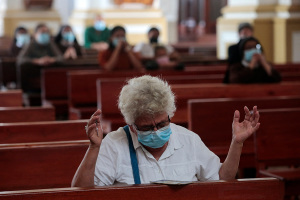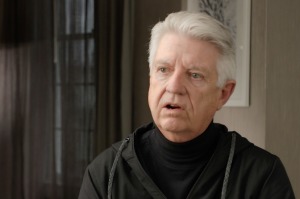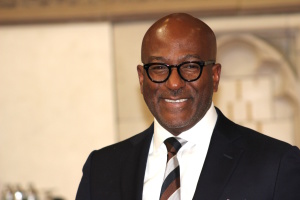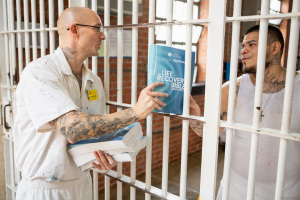LGBT Rights vs. Religious Freedom: No Middle Ground?

According to one Christian thinker, it's time to get on the LGBT bus or be thrown under it.
Last week a thought occurred to me. I wanted to tweet it out but wondered whether it would be too incendiary. The thought was this: "It seems odd how confident we are that folks can lose their unwanted sexual parts, but can't lose their unwanted sexual attractions."
And then I thought of the stunning article by Christian ethicist David Gushee. And if you follow me on Twitter, you know what I did next. I hit "Tweet."
In his article at Religion News Service, Gushee fired a warning shot across the bow of conservative evangelicals and religious traditionalists. He writes, "[y]ou are either for full and unequivocal social and legal equality for LGBT people, or you are against it. ... neutrality is not an option. Neither is polite half-acceptance . . . Hide as you might, the issue will come and find you."
Now, there have been honest attempts by people on both sides of these issues to offer third-way sensible solutions, even compromises, that accommodate religious freedom and LGBT rights. Still, I think Gushee is right when he said these solutions will largely be rejected, shouted down by demands of a full embrace of the LGBT agenda.
What bothered me, however, deeply about Gushee's piece, was how he framed the struggle of those who hold strongly to the historic Christian vision of sex and marriage. Conservative religious holdouts, Gushee writes, "are organizing legal defense efforts under the guise of religious liberty, and interpreting their plight as religious persecution."
Jake Meador, writing at Mere Orthodoxy, was bothered too, using much stronger words than I am today. We've seen time and again, and Jake lists them, how federal, state, and local governments are forcing people to choose between their livelihoods and their faith. Meador goes on to point out what is really going on here — a clash of worldviews. And one side, at least, sees it as a total war.
And that side, as I tweeted, sees biological physical reality as fully optional and malleable to our surgical and chemical demands, while at the same time seeing emotional inclinations and sexual attraction as fixed and permanent. This is nothing but pagan Gnosticism on steroids. Gnosticism, over which Christianity triumphed 17 or 18 hundred years ago, held that the body was at best inconsequential, at worst, outright evil. Physical, biological reality is no reality at all.
And that's where we are today. When the Supreme Court ruled on so called same-sex "marriage," as my friend Jeffrey Ventrella pointed out to me recently, it wasn't just legislating morality. It was legislating metaphysics. It placed itself and our nation on the side of those who believe that, as Meador wrote, we "are completely autonomous, self-defining human individuals and [that] the government has an obligation to protect our right to self-definition."
And all who question that definition, for example Christians — who believe that what God created was good and quite real — well, we'll just simply have to go along. Or else.
So middle-ground solutions, though possible, are becoming increasingly implausible in today's divided America — an America in which a Christian ethicist like Gushee sees no reason to accommodate Christians in a pluralist society.
So, where does that leave us?
God willing, it leaves us right where we are, at our posts, obeying Christ, loving God and our neighbors. We continue to educate the young, heal the sick, feed the hungry, preach the Gospel. We continue, as Rod Dreher wrote about last week, mucking through the flood waters of Louisiana like Istrouma Baptist Church, bringing relief to the suffering — and I guarantee there you're not tripping over volunteers from the LGBT Human Rights Campaign.
No matter how difficult Christian faithfulness might become — middle ground or no — we must continue to be the Church, Christ's body on earth.
Originally posted at breakpoint.org.




























